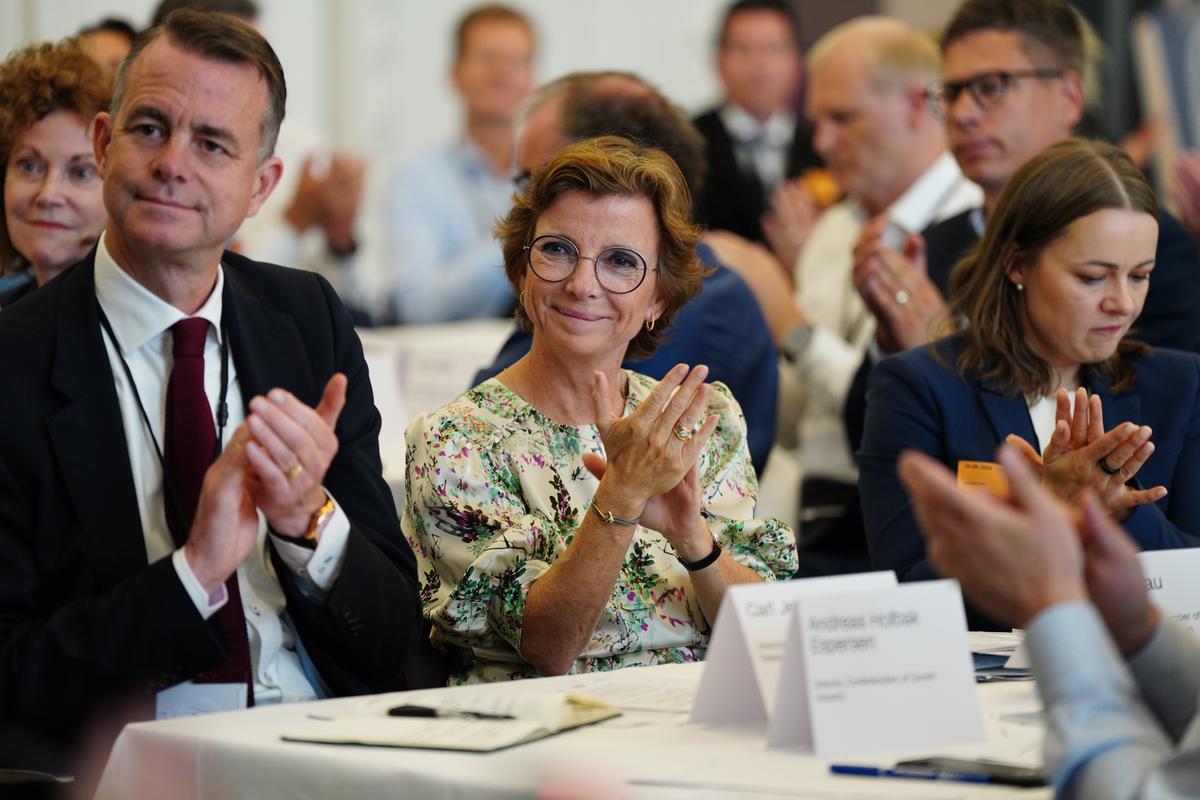On 30 August Nordic and Baltic ministers responsible for digitalization convened in Copenhagen to engage with public and private sector leaders on the future of artificial intelligence (AI) in the region. The meeting, hosted by the Nordic Council of Ministers, underscored the importance of cross-border and cross-sector collaboration, with around 100 participants, including ministers from Denmark, Norway, Finland, Åland Islands, Iceland, Lithuania, and Latvia, as well as representatives from leading companies, business associations, and academic institutions.

Karen Ellemann. Photographer Josefine Gervang Heimburger/norden.org
A shared vision for 2030
At the heart of the discussions was the Nordic AI Vision for 2030, a bold ambition for the Nordic-Baltic region to become a global leader in large-scale AI adoption. The vision focuses on harnessing AI to drive global competitiveness, enhance public services, fuel scientific breakthroughs, accelerate the green transition, and maintain cybersecurity and democratic resilience.
“We must promote innovation, ensure access to the necessary expertise, and develop an AI infrastructure that is both efficient and sustainable,” stated K. Ellemann. “This is an enormous challenge but also a unique opportunity for our region to lead the global AI revolution.”
Lithuania set for accelerated AI growth
In 2023, nearly 5% of Lithuanian companies implemented AI technologies, including over 21% of large enterprises. The country ranked 35th out of 193 in the Government AI Readiness Index 2023.
“The development of AI technologies is set to drive significant economic growth, potentially boosting Lithuania’s GDP by 5% over the next decade,” noted Aušrinė Armonaitė, Lithuania’s Minister of Economy and Innovation. “To capitalize on this potential, continued investment is essential. Over the past two years, we’ve already invested €35 million in AI-related product development and language digitization. It’s crucial that we maintain this momentum and further expand AI usage. Strengthening cooperation with the Nordic and Baltic countries presents significant opportunities for even faster advancement in the AI sector.”






